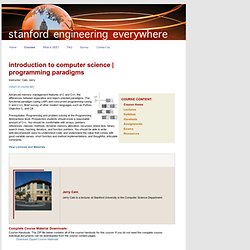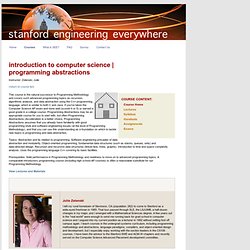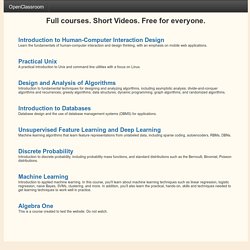

Cplusplus.com - The C++ Resources Network. Programming paradigms. Advanced memory management features of C and C++; the differences between imperative and object-oriented paradigms.

The functional paradigm (using LISP) and concurrent programming (using C and C++). Brief survey of other modern languages such as Python, Objective C, and C#. Prerequisites: Programming and problem solving at the Programming Abstractions level. Prospective students should know a reasonable amount of C++. You should be comfortable with arrays, pointers, references, classes, methods, dynamic memory allocation, recursion, linked lists, binary search trees, hashing, iterators, and function pointers. Programming methodology. Programming paradigms. Programming abstractions. This course is the natural successor to Programming Methodology and covers such advanced programming topics as recursion, algorithmic analysis, and data abstraction using the C++ programming language, which is similar to both C and Java.

If you've taken the Computer Science AP exam and done well (scored 4 or 5) or earned a good grade in a college course, Programming Abstractions may be an appropriate course for you to start with, but often Programming Abstractions (Accelerated) is a better choice. Programming Abstractions assumes that you already have familiarity with good programming style and software engineering issues (at the level of Programming Methodology), and that you can use this understanding as a foundation on which to tackle new topics in programming and data abstraction. Topics: Abstraction and its relation to programming. Software engineering principles of data abstraction and modularity. MIT. OpenClassroom.
Full courses.

Short Videos. Free for everyone. Learn the fundamentals of human-computer interaction and design thinking, with an emphasis on mobile web applications. Code University - Google Code.